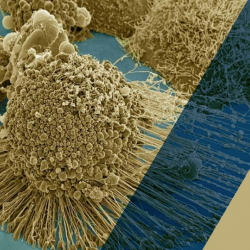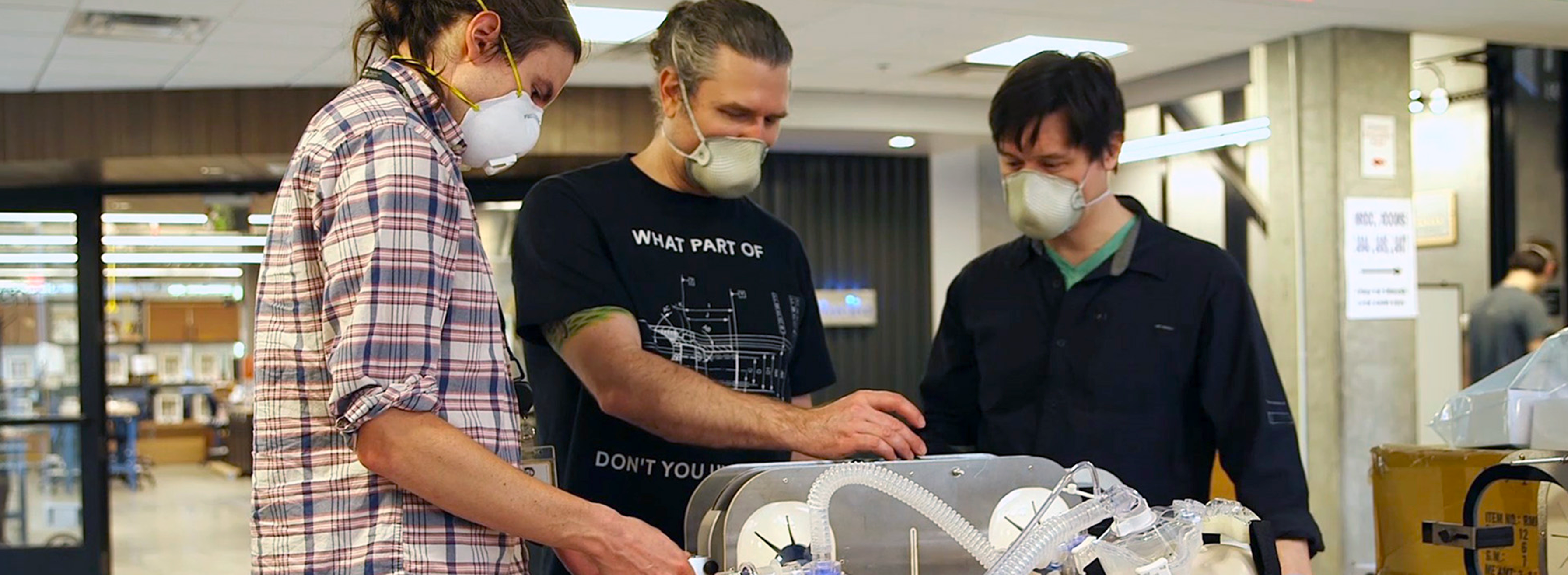Major research universities seek to address grand challenges, emerging topics, and requisite methods every day. By tackling these areas, leading research universities will enhance society by fostering discovery through curiosity-driven research.
Research That Matters

Wearable Device Could Help EMTs, Surgeons Assess Hemorrhage Blood Loss
Researchers have shown that they can accurately assess blood loss by measuring seismic vibrations in the chest cavity and by detecting changes in the timing of heartbeats. That could lead to the development of a smart wearable device that could be carried by ambulance crews and medics and made available in emergency rooms and surgical facilities.

AJC | Georgia Tech Faculty Member: I Didn’t Think I Connected With My Students Online. They Disagreed.
This is a fascinating reflection on online teaching by Georgia Tech faculty member Jennifer Leavey. Teaching virtually this fall, Leavey felt distant and removed from her students and assumed they, too, would feel they never connected with her. Turns out the students had a different take on their experience.

Stories From an Unprecedented Semester
In the College of Sciences at Georgia Tech, 2020 started out as ordinarily as most other spring semesters on campus. Students, faculty, and staff filled lecture halls, offices, and labs. They began settling into research, projects, and studying for exams — with many looking forward to spring break travels, Commencement festivities, and celebrating the end of another academic year on campus alongside colleagues, classmates, mentors, and friends.

Seeking a Simple Solution to Antibiotic Resistance
The resistance of bacteria to antibiotics is a global challenge that has been exacerbated by the financial burdens of bringing new antibiotics to market and an increase in serious bacterial infections as a result of the pandemic.

Programmable Medicine Is the Goal in New Research Into Bio-circuits
In the world of synthetic biology, the development of foundational components like logic gates and genetic clocks has enabled the design of circuits with increasing complexity, including the ability to solve math problems, build autonomous robots, and play interactive games. A team of researchers at the Georgia Institute of Technology is now using what they’ve learned about bio-circuits to lay the groundwork for the future of programmable medicine.

School of Public Policy Researcher Explores Covid-19’s Impact on Child Welfare, Domestic Violence
The pandemic forced schools and businesses to shut down, left millions out of work, and cooped up many families inside their homes for months on end. It is a combination that has led to an increase in child abuse and neglect and domestic violence — often in families with no history of such problems, according to School of Public Policy Assistant Professor Lindsey Bullinger.

Genetics and Cancer: Research Offers New Insights on Risks, Onset, Progression
The Knudson Hypothesis argued that two mutations in the type of genes that suppress tumors are needed to lead to changes that could cause cancer. However, John McDonald, a School of Biological Sciences professor and the director of Georgia Tech’s Integrated Cancer Research Center, says the research, published in Oncotarget, “shows, for the first time, that nearly all healthy individuals carry at least one potentially cancer-causing tumor suppressor gene mutation. The implication is that a majority of the human population is, to a greater or lesser extent, predisposed to develop cancer.”

Considering Cybersecurity When Social Circles Share Digital Resources
Everyone who has ever shared an apartment in college has experienced some form of this challenge: You move in with a group of three other people. You think you set proper boundaries and rules for the house, but everyone swears they’re laid back and not too worried about any of the others getting out of line. After a while, everyone settles in, and the next thing you know one roommate is taking a little too much advantage of your goodwill.

